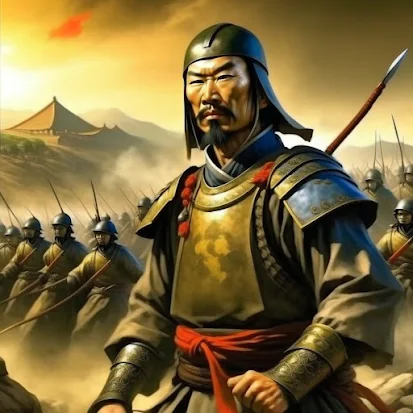Book Summary: Sun Tzu - The Art of War
Introduction
Sun Tzu's The Art of War is a timeless Chinese military treatise that has had a profound influence on military strategy and tactics throughout history. It is not only a guide for military leaders but also a valuable tool for anyone seeking to understand the principles of competition, conflict resolution, and strategic thinking. Many of the ideas and strategies mentioned in the book are now used in many areas of life, such as business management
History of the Book
The exact date of the book's composition is uncertain, but it is generally believed to have been written during the Spring and Autumn Period (770-476 BCE) in ancient China. Sun Tzu, the author, was a Chinese military strategist and philosopher who lived during this time. The book's principles have been studied and applied by military leaders and scholars for centuries, and it remains a highly influential work today
Main Points and Important Lessons
The Art of War is divided into thirteen chapters, each addressing a different aspect of warfare. Some of the key themes explored in the book include
Know Thyself and Your Enemy: Sun Tzu emphasizes the importance of understanding both your own strengths and weaknesses as well as those of your opponent
Avoid Direct Confrontation: Whenever possible, Sun Tzu advises avoiding direct confrontation and seeking to defeat your enemy through indirect means
Utilize Deception: Deception is a powerful tool in warfare, and Sun Tzu recommends using it to confuse and disorient your enemy
Maintain Flexibility: The battlefield is a dynamic environment, and Sun Tzu stresses the importance of adaptability and the ability to respond to changing circumstances
Preserve Your Forces: Sun Tzu believes that it is essential to conserve your forces and avoid unnecessary losses
Understand Logistics: The importance of effective logistics and supply lines is another key theme in The Art of War
Advantages and Disadvantages
The advantages of studying The Art of War are numerous. It provides valuable insights into the principles of strategy, tactics, and leadership. The book's timeless wisdom can be applied to a wide range of situations, not just military conflicts. However, it is important to note that the book was written in a different cultural and historical context, and some of its principles may not be directly applicable to modern warfare or other competitive situations
Famous Quotes
The Art of War is filled with memorable quotes that have become
widely recognized. Here are a few examples:
“Appear weak when you are strong, and strong when you are weak.”
“The supreme art of war is to subdue the enemy without fighting.”
“If you know the enemy and know yourself, you need not fear the result of a hundred battles. If you know yourself but not the enemy, for every victory gained you will also suffer a defeat. If you know neither the enemy nor yourself, you will succumb in every battle.”
“Let your plans be dark and impenetrable as night, and when you move, fall like a thunderbolt.”
“In the midst of chaos, there is also opportunity”
“Supreme excellence consists of breaking the enemy's resistance without fighting.”
“All warfare is based on deception. Hence, when we are able to attack, we must seem unable; when using our forces, we must appear inactive; when we are near, we must make the enemy believe we are far away; when far away, we must make him believe we are near.”
“Victorious warriors win first and then go to war, while defeated warriors go to war first and then seek to win”
“The greatest victory is that which requires no battle.”
“If your enemy is secure at all points, be prepared for him. If he is in superior strength, evade him. If your opponent is temperamental, seek to irritate him. Pretend to be weak, that he may grow arrogant. If he is taking his ease, give him no rest. If his forces are united, separate them. If sovereign and subject are in accord, put division between them. Attack him where he is unprepared, appear where you are not expected .”
Conclusion
Sun Tzu's The Art of War is a classic work of military strategy that continues to be relevant today. Its principles can be applied to a wide range of situations, from business competition to personal relationships. While the book may have limitations, its enduring wisdom and timeless insights make it a valuable resource for anyone seeking to understand the art of conflict and competition
Information about the Author
Sun Tzu, the author of The Art of War, was a Chinese military strategist and philosopher who lived during the Spring and Autumn Period (770-476 BCE). Little is known about his personal life, but his work is considered one of the most influential military treatises in history


